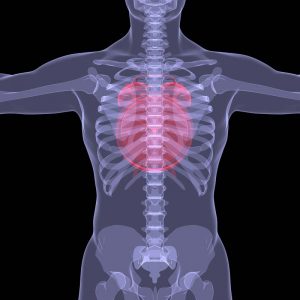The circadian rhythm is a subject of many studies, yet it remains a mystery in many ways. While scientists have identified many of the cell proteins involved in circadian rhythm and several genes that contribute to a healthy rhythm, the “master clock” gene remained elusive. However, a recent chronobiology study on rats indicates that the Zfhx3, or Zinc Finger Homeobox 3, gene may be the master gene that dictates this important biological rhythm.
The Circadian Clock Ticks On
The circadian rhythm dictates not just sleep-wake cycles, but a variety of vital health processes such as DNA repair. There are many environmental cues, or zeitgebers, that influence this internal clock. These include temperature and light. Light is a particularly important zeitgeber. Our retinas sense light levels and intensity and pass this information on to the suprachiasmatic nucleus of the brain, which then tells different glands to produce melatonin, cortisol and other hormones associated with sleep and wakefulness.
The circadian rhythm is almost impossible to change, and we disrupt it only with dire health consequences. The stubbornness of our internal 24-hour clock is a major health issue for modern people, who often have schedules that interfere with getting a good night’s sleep. In addition, people who have disorders of the circadian rhythm often find there is no cure, but merely treatments that can help make their lives a little less difficult.
When Your Circadian Rhythm Is Disrupted

Delayed sleep phase disorder is another case where the inflexible circadian rhythm can lead to health problems. People who have this disorder have difficulty sleeping until very late at night, which leads to trouble waking in the morning. While there are treatments, such as melatonin supplements and special diets that can help this disorder, it remains a lifelong struggle for people who suffer from it. The circadian clock cannot be simply turned back.
Rats have a similar circadian rhythm to humans, and also can suffer from circadian sleep disorders. For this reason, rats are often the subjects of chronobiology research. In this case, we may have identified the gene behind the circadian rhythm by sequencing the genome of rats who have non-24 hour sleep disorders, a disease that also occurs in humans.
Sleep Disordered Rats and the Zfhx3 Gene
Rats, like most mammals, also have a variety of internal clocks, including a circadian, or 24-hour, clock. In order to better understand the circadian rhythm, researchers took a group of rats who had non-24 hour sleep-wake cycles and studied their brains as well as their DNA. These rats all had a “short circuit” in their circadian rhythm that caused them to have shorter sleep-wake cycles than the normal 24-hours. They lived out of sync with natural light-dark cycles, sleeping and being active at constantly changing times of day.
Genomic sequencing revealed the one genetic mutation that all of these rats had in common was a particular mutation in the Zfhx3 gene. In addition, further testing of brain tissue showed that the rats all lacked certain neurotransmitters that relay information between the suprachiasmatic nucleus and the pineal gland which secretes melatonin.
Zfhx3: The Workings of Your Internal Clock

Understanding the circadian rhythm and other aspects of human chronobiology is essential to understanding the human body. The circadian rhythm and other internal clocks are deeply intertwined with various cell processes that affect both health and disease risk. Identifying the gene behind circadian rhythm opens up new avenues of research and treatment that may help people to live longer, healthier lives.







